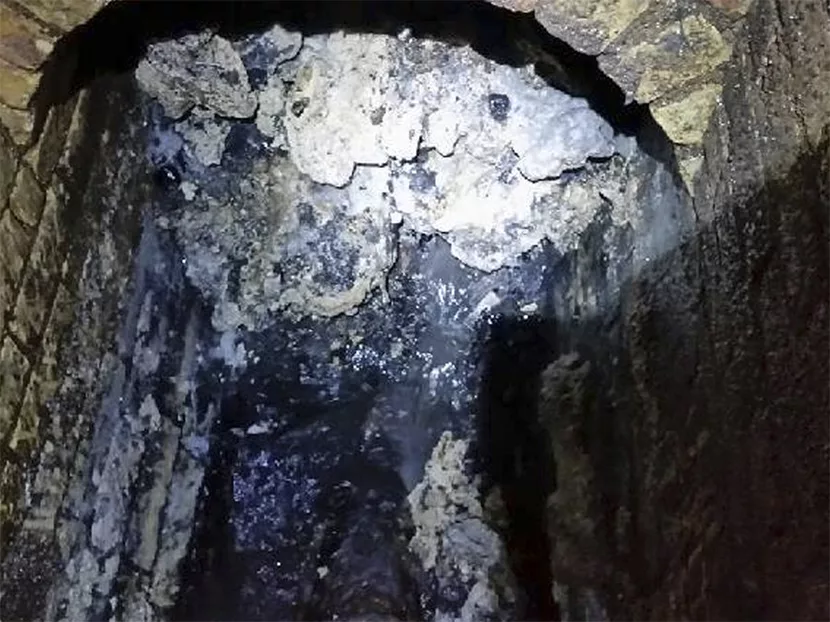A water utility is in the midst of a “three-week sewer war” against an gigantic fatberg clogging a Victorian-era London sewer.
The fatberg is longer than two football fields and weighs in at 130 tons. And it’s described as hard as concrete.
A press release from Thames Water provides the details:
Thames Water engineers have started a three-week sewer war against a giant 250 metre long fatberg around 10 times bigger than the famous Kingston monster found in 2013.
The Whitechapel fatberg is one of the largest ever found, with the extreme rock-solid mass of wet wipes, nappies, fat and oil weighing the same as 11 double decker buses. It is blocking a stretch of Victorian sewer more than twice the length of two Wembley football pitches and weighs-in at a staggering 130 tonnes.
Thames Water’s head of waste networks, Matt Rimmer, said: “This fatberg is up there with the biggest we’ve ever seen. It’s a total monster and taking a lot of manpower and machinery to remove as it’s set hard.
“It’s basically like trying to break up concrete. It’s frustrating as these situations are totally avoidable and caused by fat, oil and grease being washed down sinks and wipes flushed down the loo.”
Work on Whitechapel Road to remove the immense fatberg started this week and involves an eight-strong crew using high-powered jet hoses to break up the mass before sucking it out with tankers, which take it away for disposal at a recycling site in Stratford.
They are painstakingly removing on average of 20 to 30 tonnes per shift with work starting at 8am and continuing until 5pm seven days a week.
Matt added: “We check our sewers routinely but these things can build up really quickly and cause big problems with flooding, as the waste gets blocked. It’s fortunate in this case that we’ve only had to close off a few parking bays to get to the sewer. Often we have to shut roads entirely, which can cause widespread disruption – especially in London.”
CCTV camera inspections showed the 1200mm high by 700mm wide sewer to be totally blocked by the fatberg which is 3.5 metres deep below ground for 250 metres. Work will continue throughout September until the sewer is clear.
Thames Water serves 15 million customers and spends around £1 million a month clearing blockages from its sewers in London and the Thames Valley, all caused by items like fat, wipes, nappies, cotton buds, sanitary products and condoms. That’s an average of three fat related blockages and 4.8 blockages caused by items like wet wipes every hour.
The company’s ‘Bin it – don’t block it’ campaign, which mainly targets households, is supported by two new videos set to be released on Monday demonstrating how fat and wipes can be responsibly disposed of in the bin.
Thames Water engineers also began visiting food outlets earlier this year to discuss how they dispose of fat and food waste, plus offer advice on grease trapping equipment for commercial kitchens.
Matt added: “When it comes to preventing fatbergs, everyone has a role to play. Yes a lot of the fat comes from food outlets but the wipes and sanitary items are far more likely to be from domestic properties. The sewers are not an abyss for household rubbish and our message to everyone is clear – please ‘Bin it – don’t block it’.”




